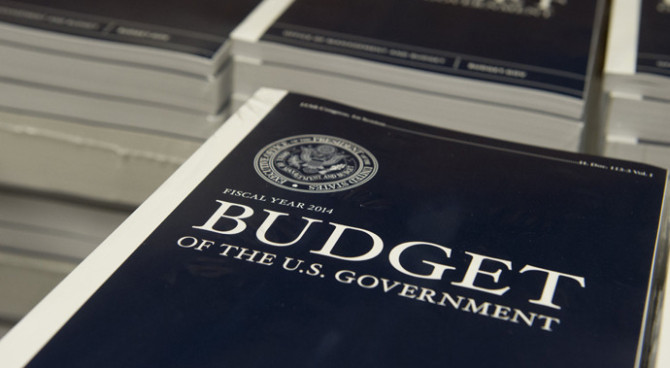If the special deals that create crony capitalism are allowed to survive, Republican efforts will have failed.
Thanks to the efforts of Democrat Sen. Max Baucus and Republican Rep. Dave Camp, Congress will take up tax reform this year. Before the debate begins, however, Republicans need to set out the principles that represent our values. In my 24 years in the House and Senate, I never wrote a bill that represented a 100% statement of my values, but I always found it important to know where the North Star was as I tried to navigate through the swamp.
First, under no circumstances should Republicans agree to make the tax system even more progressive than it already is, or to increase the number of people who do not pay income taxes. In 1980, the top 1% and 5% of income earners in America paid 19.1% and 36.9% of total federal income taxes. Today, the top 1% and 5% pay 37.4% and 59.1%. Meanwhile, 41.6% of American earners now pay no federal income taxes.
The more progressive the tax system becomes the more unstable the country’s public finances get. High-income Americans earn a large share of their income in bonuses, dividends and capital gains, all of which are highly sensitive to the business cycle. This means wide swings in tax collections that play havoc with government budgets. The removal of large numbers of people from the tax rolls makes the political system more unstable. Individuals and households that pay no income taxes have a diminished stake in limited government.
Second, government should collect the minimum revenues needed to support and protect a free society and do so in a way that is, as far as possible, neutral in its effect on individual behavior. In its purest form, this means no individual deductions, credits or tax expenditures. No matter how committed Americans may be individually to charitable giving or home ownership, the government should not promote those values through special provisions in the tax code.
Third, Republicans should require all similarly structured firms be treated the same. If sweat equity is taxed as a capital gain for a mechanic who opens a garage with a financial partner, it should be treated the same for a hedge fund or private-equity manager who shares in the gains of his investors.
Fourth, business subsidies and credits should be eliminated. Ending subsidies to fund lower tax rates improves the efficiency of capital allocation. The sine qua non of tax reform is a more efficient allocation of investment capital. If the tax breaks that create crony capitalism are allowed to survive, then tax reform failed.
Fifth, all costs of production should be equally deductible when they are actually incurred, and all income should be recognized at the time it is actually earned and taxed only once. President Obama’s repeated proposal to force large Subchapter S corporations and limited liability entities to be taxed as C corporations is a movement in the wrong direction. Revenues flowing from those changes would come almost exclusively from the double taxation of corporate income: first on corporate profits, and again when individuals pay taxes on dividends and capital gains.
Other things being equal, the efficiency of a nation’s corporate tax system can be measured by the lack of special-interest provisions in the code and how low the tax rate is. But things are never equal—and a fixation with achieving a given corporate tax rate is dangerous. That’s because you can, within limits, make the tax rate whatever you want it to be by changing the definition of what is a deductible business expense.
For example, by limiting or eliminating the deductibility of interest cost—a perfectly legitimate cost of doing business—the “savings” could be used to lower the corporate tax rate. But such changes would further distort the cost of capital relative to the cost of labor and almost certainly be detrimental.
Similarly, you could eliminate the deductibility of wages and other costs of doing business and simply tax gross receipts instead of net profit. The tax rate would be low, but would economic efficiency be increased? No.
Sixth, tax reform should move toward the elimination of taxes on the foreign earnings of American companies, whose profits are already taxed abroad. Other countries recognize that the competitiveness of their companies would be severely damaged if they had to pay higher taxes than their competitors in foreign markets and do not impose domestic taxes on foreign earnings.
By attempting to tax foreign earnings when they are repatriated, the United States has incentivized companies not to repatriate earnings. As a result, U.S. companies hold huge hoards of cash abroad while domestic investment lags.
Since America is now the worst place in the world to earn corporate profits, we might be better off ending all business subsidies and using the savings to eliminate the dual taxation of corporate income and the taxation on foreign earnings—and to lower the corporate tax rate as much as is consistent with revenue neutrality, using static scoring. We could then write a provision into the law that if the improved code collects more taxes than the static revenue estimates, the rate would automatically be lowered over time by the amount of over-performance, down to 25%.
Some final advice: Compromise is fine if it moves you in the right direction. But don’t compromise on things that will only make rational reform harder in the future. If you can improve the tax code and help the economy now, do it. But remember, the Obama administration too shall pass, and a poor deal now will make a good one harder to achieve in the future.
Mr. Gramm, a former Republican senator from Texas, is a senior partner of US Policy Metrics and a visiting scholar at the American Enterprise Institute.
A version of this article appeared July 10, 2013, on page A13 in the U.S. edition of The Wall Street Journal, with the headline: A GOP Game Plan for Tax Reform.



